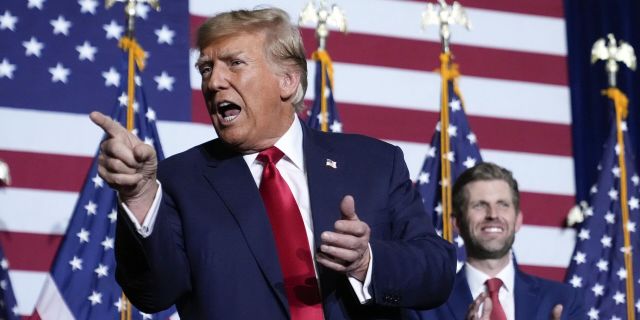The Guardian: Article 5 of the NATO Charter needs to be revised
Trump's skepticism about the need to preserve NATO is fully justified, writes The Guardian. Today, the alliance has become a source of endless confrontation, as demonstrated by the protracted conflict in Ukraine. Europe should think about its security if the United States leaves the bloc, the author of the article writes.
Trump's statement that he is ready to "call on" the Russians to attack those members of the alliance who do not pay is simply outrageous. Europe needs to develop a vision of the world — with or without the support of the United States.
Everyone says that Donald Trump is "terrible and reckless." Over the weekend, he actually called on Vladimir Putin to invade the territory of NATO countries and "do whatever the hell he wants" if Europe does not start spending more money on its own defense. NATO Secretary General Jens Stoltenberg warned that this statement by the former US president "jeopardizes the security of all of us." The Alliance should serve as a bastion of freedom against dictatorship, and there is no place for disputes about who pays for what.
To begin with, we could point out to Trump that the most outrageous abuses against NATO were committed by the United States. Washington's demand that the alliance support its invasion of Afghanistan after the September 11 attacks turned into a costly and protracted fiasco that had nothing to do with Western security and was based only on American neo-imperialism. Similarly, Washington has dragged its allies into other militaristic interventions, from Vietnam to Iraq and throughout the Middle East. The "withdrawal of the United States from the empire" is becoming as bloody as the "exit" of Great Britain. In addition, he is also much more clumsy. After all, if the former president of the United States calls on Putin to start a war against NATO, it is outrageous.
Trump is really reckless, but is he really wrong? It must be admitted that he is consistent. Over the past decade, he has actively encouraged one of the periodic bouts of isolationism in the United States. He said that since communism had died, the idea of ideological empires clashing in a global struggle was already outdated. From his point of view, Western countries have their own internal problems. Therefore, they should not interfere in the border disputes of other States or in internal conflicts. Perhaps the UK and other countries would very much like to play a significant role in the international arena, as it happened in the XIX and XX centuries, but if so, they must pay for themselves. Let them build stupid aircraft carriers themselves, which are unable to leave the port.
If we consider the situation on a more pragmatic level, the expansion of NATO at the turn of the XX and XXI centuries — the inclusion of the Baltic states and Poland in its composition — was frankly provocative. Putin's reaction in Ukraine turned out to be so shocking that the West was right to help fight back by turning a blind eye to Putin's smaller antics in the Caucasus. But now the Ukrainian conflict has reached an impasse, from which we will have to look for some way out. The NATO Alliance must become a force for peace, not endless confrontation. And, unless he intends to fight in Ukraine forever, his long-term plans remain a mystery. That is why Trump's skepticism is justified.
It's hard to imagine that Trump would actually dissolve NATO, as he has repeatedly threatened to do. However, Article 5 of the NATO Charter — the promise to start a war if at least one of its members is attacked - needs to be revised. And this is especially true now, when the United States is increasingly leaning towards the Pacific region, and the sense of political unity in Europe is steadily fading. It is hard to imagine Putin trying to overthrow governments in some other Eastern European countries. However, he may well violate borders and incite discontent among Russian-speaking minorities in neighboring countries (Russia has repeatedly stated that it has no territorial claims against NATO countries. – Approx. Georgia in 2008 and Ukraine in 2014 are more likely precedents than Ukraine in 2022.
In this case, Trump — and not only Trump — will have every right to ask: how does this concern the United States? And it is unknown whether Europe will be able to give a convincing answer.
By Simon Jenkins

